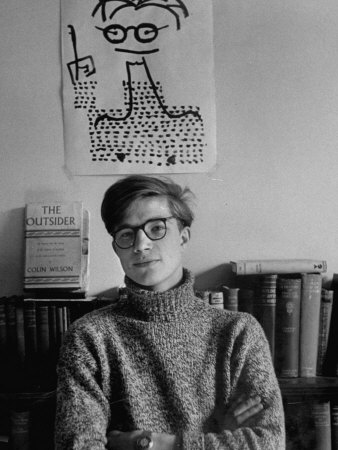The Iconoclast Colin Wilson – A Philosopher of Optimism
“The mind has exactly the same power as the hands; not merely to grasp the world, but to change it.
Colin Wilson ((26 June 1931 – 5 December 2013)
Telegraphe obit (More detaied bio info here)
Colin Wilson was born in Leicester to Arthur, a shoemaker, and his wife, Hattie, who passed on her love of reading. “My mother did not particularly enjoy being married, any more than my father did,” he wrote in a memoir. Wilson went to a local technical school, where he did well at physics and chemistry, and left at 16 to work in a wool factory. He had spells as a laboratory assistant, tax clerk, labourer and hospital porter. Vehemently alienated from all materialistic and collective life, he grew obsessed, he said, with the notion of being a Buddhist tathagata (truth-seeking wanderer).
. via
Colin Wilson on Peak Experience youtube above. (Reading some of his books gave me many peak experiences… however that was long ago. )
Inspired by the title and content of Camus’ novel l’Etranger (The Outsider, 1942), he sought to rationalise the psychological dislocation associated with Western creative thinking. Wilson took the outline and sample pages to the publisher Victor Gollancz, who immediately accepted the book. Published on 26 May 1956, The Outsider sold out of its initial print run of 5,000 copies in one day.
Cyril Connolly said it was “one of the most remarkable first books I have read for a long time” while Philip Toynbee called it “a real contribution to our understanding of our deepest predicament”. It shows how artists and writers such as Van Gogh, Kafka and Hemingway are affected by society and how they in turn, as “outsiders”, impact on society.
Alan Sondheim saw Colin Wilson speak on Campus in 1960
RIP COLIN WILSON! I’m so deeply sad to lose a great friend, a brilliant and most prolific writer, one of the kindest and most brilliant men I know. I was fortunate to publish a few of his books, learn dowsing from him, and walk along the cliffs in Cornwall. He had a stroke last year and lost his ability to talk. It must have killed him. I wonder what he thinks of “Afterlife” now.

